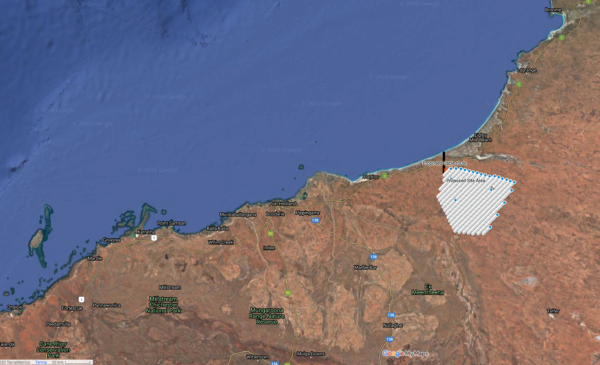Last week at the Smart Energy Summit, green hydrogen’s cred was boosted by the announcement of new founding partners to the Smart Energy Council-initiated Zero Carbon Certification Scheme, which will verify the origins of renewable hydrogen, green ammonia, and eventually of metals processed using green energy.
The Victorian Government has now joined the Scheme’s initial list of eight founding partners announced at its launch in December 2020.
Lily D’Ambrosio Victoria’s Minister for Energy, Climate and the Environment, beamed into the mostly face-to-face Summit via Zoom, to say, “I’m really excited about the potential for renewable hydrogen.”
She named the decarbonisation of gas supplies and the powering of green manufacturing as among the opportunities it provides and added, “To support the industry we also need ways to trace and certify where and how hydrogen is made … Schemes like this are instrumental to encouraging best practice in production and boosting investor confidence.”
Traceability genius joins the founders
The team at Australian innovator Power Ledger are experts in using the blockchain to digitally trace, track and trade units of energy, and environmental commodities, and last week also brought their expertise and support to the Zero Carbon Certification Scheme partners’ circle.
Dr Jemma Green, Co-founder and Chairman of Power Ledger, said she was delighted to partner with the SEC and others “to help the green economy grow internationally and domestically in Australia.”
The Zero Carbon Certification Scheme will deal only with green hydrogen, emphasises Scott Hamilton, advisor to the scheme, who is also on the Strategic Advisory Panel to the Australian-German Energy Transition Hub.
“We don’t want potential greenwashing or blurring of what is green and what is not,” he said, adding that customers for high-density green fuel who see the Scheme’s brand “will have confidence that they’re getting zero-emissions hydrogen.”
Former Liberal leader green lights clean hydrogen
At the opening session of the conference, former Prime Minister Malcolm Turnbull had set the tone of discussion, saying, “Green hydrogen, that’s the only kind of hydrogen we should be planning for.” He described blue hydrogen — made from fossil fuels but capturing and sequestering the carbon produced in some form — as “BS.”
He said, “I’m old enough to remember when we thought carbon capture and storage [CCS] would work and we were sincere… but it does not work, other than in some very specialised situations.”
Green hydrogen is the only hue, he said: “There is no other colour of hydrogen that you can responsibly support.”
The Zero-Carbon Certification Scheme is designed to build faith in the green hydrogen ecosystem.
Hamilton says it was initially planned to focus on the needs of local founding members such as CWP Global, “making sure that they can attract investment to get the Asian Renewable Energy Hub up and running”.
To be located in the Pilbara region of Western Australia, the AREH will build 26 GW of wind and solar capacity, some 3 GW of which will be allocated to large energy users in the region, while the bulk of generation will be dedicated to large-scale production of clean hydrogen for domestic and export markets. The project is expected to reach a financial investment decision in 2025.

Image: AREH/Google Maps
Towards a globally recognised green hydrogen certification
In the months since it launched, the Scheme has emerged as a globally significant certification initiative, with overseas founding partners such as the US-based Ammonia Energy Association, which sees certification “as a critical part of establishing green ammonia as a viable energy source for decarbonising the energy system,” says Hamilton.
He cited shipping as one of the biggest sectors likely to rely on green ammonia for decarbonisation of its activities.
The Scheme’s pilot certification is of the ACT’s ActewAGL hydrogen refuelling station, the first public facility of its kind in Australia, which will be assessed by Point Advisory, a sustainability services company that is on the Clean Energy Regulator’s register of certified auditors.
Hamilton expects this first certification will be completed by July 2021.
He says the next step for the Scheme is likely to be a study assessing “the potential transport emissions associated with exporting renewable ammonia to places like Japan and Germany.”
All emissions in the green hydrogen supply chain will be considered during certification, with producers required to offset any residual emissions using Australian-accredited or internationally recognised offset programs.
Champions for Climate Action beat a path to the Scheme
COP26 High Level Champions for Climate Action, another of the SEC’s founding partners in the Scheme, brings members such as the US politician, philanthropist and author, Michael Bloomberg, and the UK’s High Level Climate Action Champion Nigel Topping to the Scheme’s promotion and guidance.

Image: Nigel Topping
“It’s really important,” says Hamilton, “to have people who are going to be around the conference in Glasgow later this year, supporting the Scheme and advocating for us.”
Chief Executive of the Smart Energy Council, John Grimes, says that trusted certification of green hydrogen is a critical step in building the jobs and industries of the future.
D’Ambrosio credited Grimes for his tireless advocacy and commitment to the Scheme, saying, “This is exactly what is needed to accelerate renewable hydrogen in Australia.”
This content is protected by copyright and may not be reused. If you want to cooperate with us and would like to reuse some of our content, please contact: editors@pv-magazine.com.









2 comments
By submitting this form you agree to pv magazine using your data for the purposes of publishing your comment.
Your personal data will only be disclosed or otherwise transmitted to third parties for the purposes of spam filtering or if this is necessary for technical maintenance of the website. Any other transfer to third parties will not take place unless this is justified on the basis of applicable data protection regulations or if pv magazine is legally obliged to do so.
You may revoke this consent at any time with effect for the future, in which case your personal data will be deleted immediately. Otherwise, your data will be deleted if pv magazine has processed your request or the purpose of data storage is fulfilled.
Further information on data privacy can be found in our Data Protection Policy.